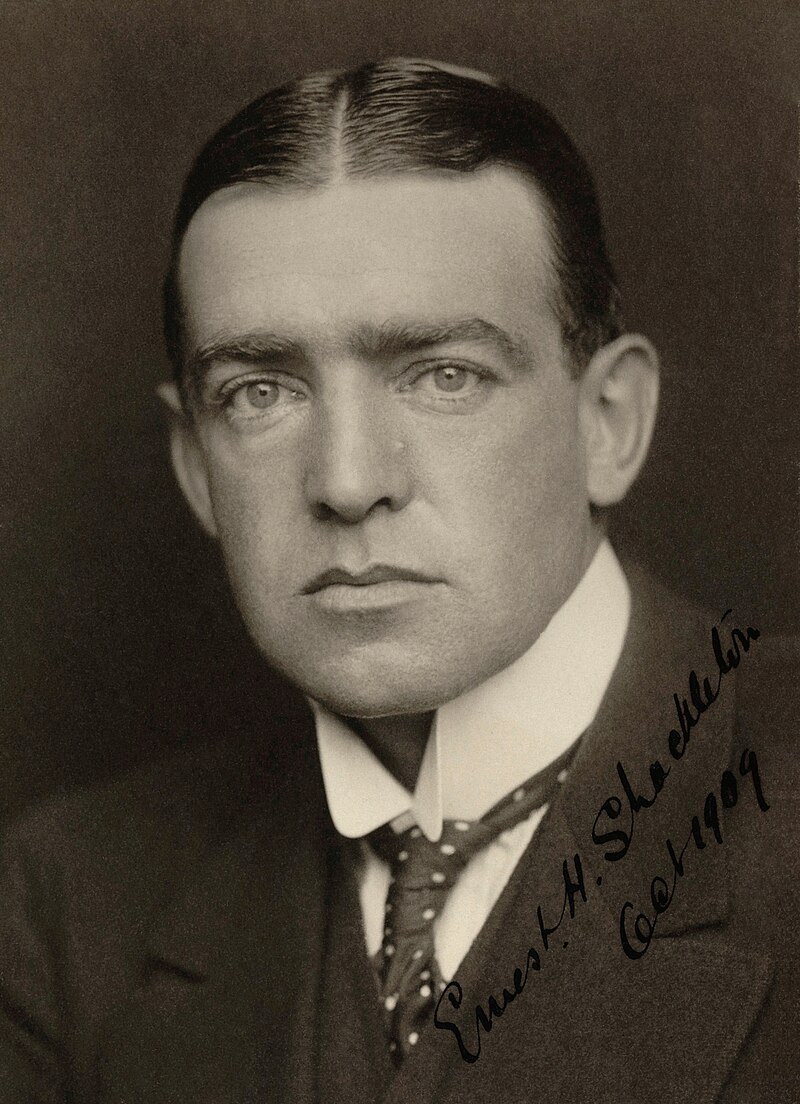I’m sure that we’ve all experienced this once or twice (or more) in our lives. We go to the bank (or repair shop or some other place of business) only to find that the only person on earth who can fulfill our specific need is out of the office.
We’re told, “Sorry, there’s nothing I can do.”
I don’t believe that. I never have.
This wouldn’t have ever happened on Shackleton’s ship.
Ernest Shackleton was an Irish explorer, who one hundred years ago sailed under the British flag. This is probably the first time most readers have ever heard the name Shackleton. That’s because Shackleton never actually completed any of his expeditions of discovery.

The photo of Shackleton above, from the National Library of Norway, is public domain, and was taken by British photographer George Charles Beresford.
Yet men would follow Shackleton to the ends of the earth and trust him with their lives.
Shackleton would later go down in history for never having lost a man under his watch (although one man lost a couple of toes to frostbite on the ill-fated Trans-Antarctic Expedition of 1914–1917).
But Shackleton is not known for his prowess in exploring and discovering. Most people today know about Shackleton for his style of administration.
After over a century, people are still trying to get inside Shackleton’s head to understand his way of thinking and apply that to their modern day businesses.
Shackleton figuratively and literally ran a tight ship.
A typical steamship of his day would have had a cook, some guy to shovel coal, someone to do the laundry, and someone to call out, “Thar she blows” or “land ho” from the crows nest.
Did that mean that if the cook fell ill, the crew wouldn’t eat? Or if the laundry guy was sick, the laundry didn’t get washed? Or if the guy whose job it was to shovel coal wasn’t feeling well, the coal didn’t get shoveled? Or if the guy whose job it was to sit in the crows next called in sick, land or spouting whales would not be seen?
No.
The reason this didn’t happen on Shackleton’s ship is because everyone was trained to do everyone else’s job.
Yes. On Shackleton’s ship, everyone was trained to do everyone else’s job.
As unbelievable as this sounds, on Shackleton’s ship, everyone was trained to do everyone else’s job.
That means that everyone took turns cooking, washing the laundry, shoveling coal, and sitting in the crows nest yelling, “Thar she blows” and “land ho.”
Image if you will, a modern day business run as tightly as Shackleton’s ship.
Image a place of business where if someone is out of the office (or garage, or kitchen), someone else can fulfill that particular task or duty.
Next time you are told that the person whose job it is to do that particular task is out and there is nothing that can be done, don’t believe it. There is no reason that a modern day business should be run that way.
Short of a few exceptions involving nuclear physics, rocket science, and specialized medical practices, there are very few places where office staff cannot be trained to do everyone else’s jobs.
There’s nothing I can do usually means, there is nothing I will do.

